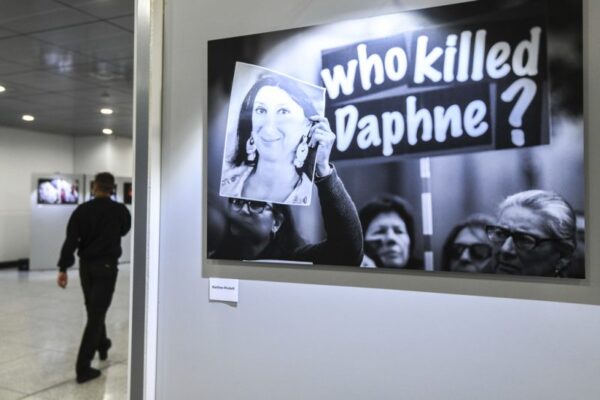While the Maltese government pats itself on the back over steps towards supposed media reform, the reality in Malta is that very little has changed, and the future of independent journalism and the safety of journalists hangs in the balance.
In an article commissioned for the International Press Institute (IPI), a 73-year-old global organisation dedicated to preserving media freedom with members in over 120 countries, The Shift laid down a timeline of the so-called reform in the context of the assassination of Daphne Caruana Galizia.
Following the murder that shocked Malta, Europe and the world, a public inquiry found the state had responsibility for her murder and made a raft of legislative recommendations to improve the safety of journalists.
Two years on and despite reports from a government-appointed board of “experts”, only one of the 28 key recommendations has been fully implemented.
This was the setting up of a Committee of Media Experts tasked with examining conditions for journalists and producing specific recommendations that parliament could implement.
Instead, the government-appointed board advised on a law already drafted by the government instead of reporting them during the process. Two years and tens of thousands of euros of taxpayer funds later, Malta’s journalists are no safer or more secure in their positions.
While the government proudly announced some proposals in October, media watchdogs at home and abroad remain cautious due to concerns over details and implementation.
Prime Minister Robert Abela’s proclamation that a media white paper would also be published is yet to be realised as no publication date has been given.
Meanwhile, Malta’s journalists struggle with precarious working conditions, burnout, political and editorial pressure, low salaries, threats, and fear due to the lack of accountability in the wake of Caruana Galizia’s 2017 assassination.
To date, three men have been convicted, and three other suspects await trial, including the alleged mastermind. In addition, none of the systemic failures that led to her death have been addressed by the government or state.
Meanwhile, media are struggling to retain and recruit staff as they look to more lucrative and ‘safer’ jobs elsewhere, leaving the future of independent journalism in the country at risk.
The long delays, lack of transparency, and across-the-board failure to seize the opportunity for true reform have left journalists and civil society concerned a crucial chance for meaningful change will be missed.
For many, this push for better and safer conditions is one of the main parts of Daphne’s legacy that they hoped to secure.
To read The Shift’s analysis of the current state of play, published by the IPI, click here.












